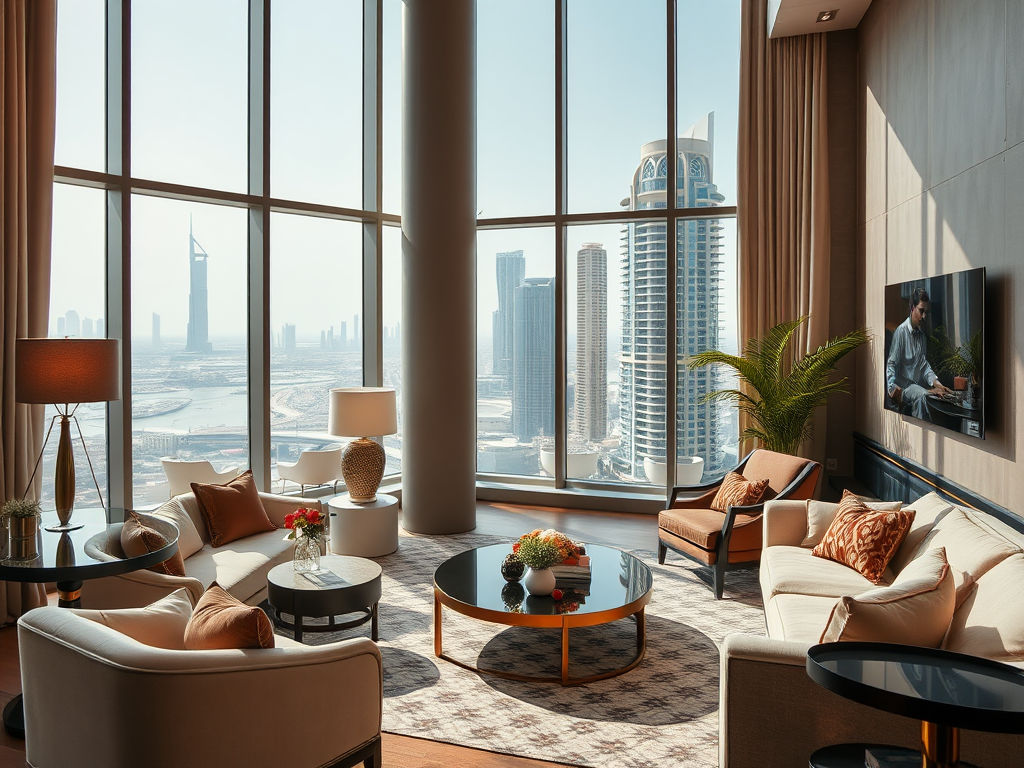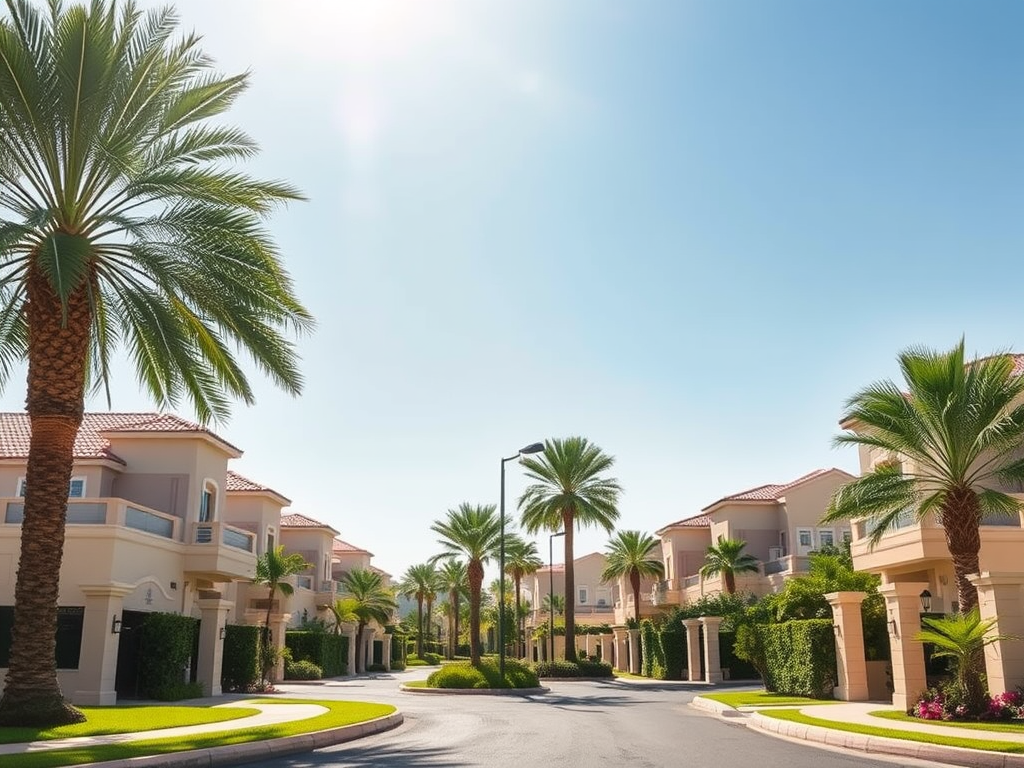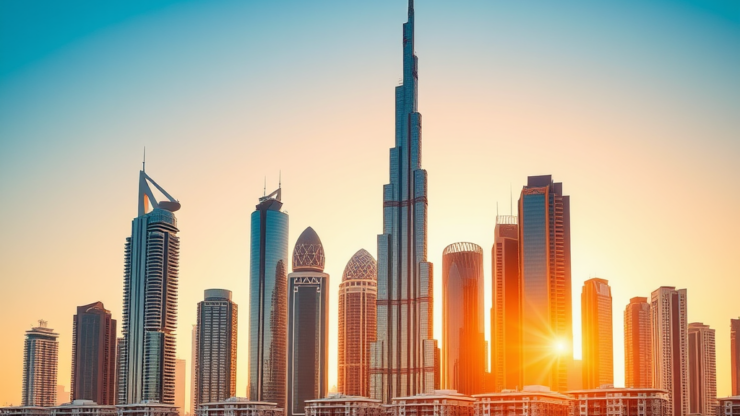The freehold property market in Dubai has attracted significant attention from both local and international investors due to its unique legal framework and the lucrative opportunities it presents. This article delves into the key aspects of the freehold property market in Dubai, discussing its benefits, challenges, legalities, and market trends that shape this dynamic sector. Whether you’re a potential buyer, investor, or just curious about real estate in the UAE, understanding this market is essential for making informed decisions.
What is Freehold Property?

Freehold property refers to a type of real estate ownership where the owner has complete control over the land and the property built on it. In Dubai, freehold properties were introduced in 2002, allowing foreigners the legal right to own property in designated areas. This ownership offers several advantages compared to leasehold options, making it an appealing choice for many. Here are some key characteristics of freehold property:
- Full Ownership: The owner has the right to the land and any structures on it indefinitely.
- Transfer of Ownership: Freehold properties can be bought and sold without restrictions.
- Long-term Investment: They typically appreciate in value, making them suitable for long-term investments.
- Inheritance Rights: Owners can bequeath their property to heirs.
- Development Potential: Owners can modify or develop their property within local regulations.
Benefits of Investing in Freehold Properties

Investing in freehold properties in Dubai presents a wealth of opportunities and advantages for potential buyers. Here are some of the primary benefits:
- High Return on Investment (ROI): Dubai’s real estate sector has consistently shown positive growth, making it an attractive market for investors seeking high returns.
- Tax-Free Income: Rental income generated from freehold properties is not subject to income tax, maximizing profitability for owners.
- Diverse Property Options: Freehold properties encompass various types, including apartments, villas, and commercial spaces, appealing to a broad range of investors.
- Excellent Infrastructure: Dubai boasts world-class infrastructure and amenities, enhancing property desirability and potential returns.
- Global Investor Hub: Dubai’s strategic location and business-friendly environment attract global investors, ensuring a vibrant and competitive real estate market.
Challenges in the Freehold Market
Despite its many advantages, the freehold property market in Dubai is not without challenges. Buyers and investors should be aware of the following issues:
- Market Volatility: The real estate market can be subject to fluctuations based on global economic conditions, influencing property values.
- Regulatory Changes: Buyers must stay updated on changes to laws and regulations that could impact property ownership and investment opportunities.
- High Competition: As a desirable market, the increased demand for properties can lead to intense competition, especially for affordable options.
- Lack of Transparency: The presence of unregulated developers and complex contracts can create uncertainties for investors.
- Property Maintenance Costs: Owners must consider ongoing maintenance and management costs, particularly for rented properties.
Before diving into the freehold property market in Dubai, it is crucial to understand the legal framework governing property ownership. Here are some key legal considerations:
- Title Deed Registration: Ensure that the property is registered and has a valid title deed issued by the Dubai Land Department.
- Know the Area: Familiarize yourself with designated freehold areas to avoid purchasing properties that may not fall under freehold ownership.
- Consult Legal Experts: It is advisable to engage with real estate lawyers or consultants to navigate the complexities of the buying process.
- Understand the Developer: Verify the reputation of the property developer to ensure they are legitimate and reliable.
- Review Documents Thoroughly: Always review documents with a legal professional before signing any agreements.
Итог
The freehold property market in Dubai offers promising opportunities for both local and international investors, given its extensive benefits and growth potential. While there are challenges and legal considerations to keep in mind, understanding the market dynamics can lead to informed decisions that optimize investments. As Dubai continues to evolve and attract global stakeholders, investing in freehold properties may be a strategic choice for those looking to capitalize on this thriving market.
Часто задаваемые вопросы
1. What types of properties can I buy as a foreigner in Dubai?
Foreigners can purchase various types of properties, including residential apartments, villas, and commercial spaces, in designated freehold areas.
2. Is there any tax on rental income from freehold properties?
No, rental income from freehold properties in Dubai is tax-free, making it a lucrative option for investors.
3. What should I consider before buying a freehold property?
It is essential to consider the property’s location, market trends, legal documentation, and the credibility of the developer.
4. Can I sell my freehold property at any time?
Yes, freehold properties can be sold at any time without significant restrictions, allowing for flexibility in investment strategies.
5. How do I find a reliable real estate agent in Dubai?
Look for agents with positive reviews, proper licensing, and extensive knowledge of the Dubai real estate market to ensure a reliable transaction experience.
